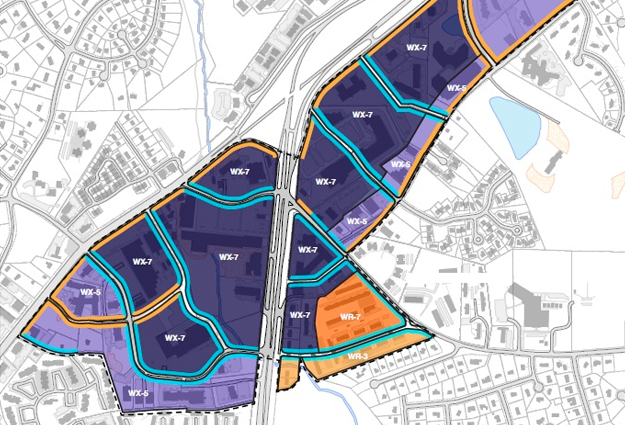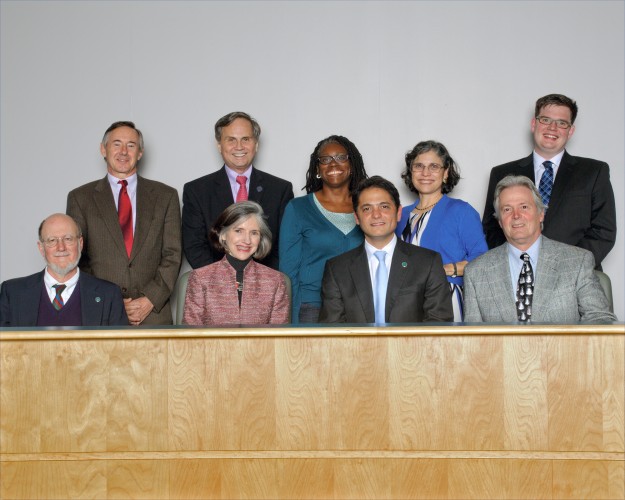CHAPEL HILL- Town planners call the chance to redevelop the Ephesus Church-Fordham Boulevard area a watershed moment in Chapel Hill’s history.
Members of the business and development community turned out Wednesday night to cheer on the Chapel Hill Town Council as the Council took the first steps of a process to rezone 190 acres in the Ephesus Church-Fordham Boulevard area.
“I rise in support of this plan, wholeheartedly,” said Jeremy Browner, who runs a law office on Legion Road. “I believe that it would bring much-needed private investment to encourage commercial redevelopment in Chapel Hill.”
The Ephesus-Fordham renewal plan is the result of nearly a decade of planning to redevelop an area currently known for vacant lots, twisted intersections and traffic snarls.
The plan calls for the Council to reconfigure the intersection of Ephesus Church Road and Fordham Boulevard, extend Elliot Road and create new mixed-use zones that allow three to seven stories of commercial and residential development.
It’s also an experiment in a new type of zoning for Chapel Hill called form-based code.
Using form-based code, the Council will set parameters for development including building height, setbacks and parking guidelines for each zone, but once these are in place, individual developers will not need to bring their projects before the council if they meet the established criteria.
Town Manager Roger Stancil said this will provide clarity for both developers and the Council.
“We have proposed a form-based code for this district that clarifies and streamlines the development process and improves predictability for the developer,” Stancil told the Council. “We are testing the assumption that if we are clear in what we want, we might get it.”
In addition to spurring redevelopment and expanding the town’s commercial tax base, Stancil said the plan will also address the long-standing traffic and flooding problems that have plagued the area for decades.
“The rezoning creates the opportunity for new tax revenues that allow us to solve problems the community has not been able to afford to resolve in the past,” said Stancil.
Town planners said individual redevelopment projects have been scuttled in the past due to the high cost of the required road and stormwater improvements.
Instead, the town will invest in the improvements upfront and be paid back incrementally as development within the district occurs.
The $10 million dollar investment in infrastructure will be financed using Chapel Hill Town Hall as collateral. Business Management Director Ken Pennoyer explained the money will also cover the recently-approved Town Hall renovations.
“Basically this is a strategy of using the collateral of one project to cover two projects, which is not all that uncommon in using installment financing,” said Pennoyer.
The majority of the 26 speakers at Wednesday’s public hearing lauded the plan as an exciting opportunity to change the way business is done in Chapel Hill. Others were more wary, worried that form-based code will remove public input from the development approval process. Critics also wanted more specifics on how and when stormwater and transit improvements would occur.
Some Council members also expressed doubts, as the form-based code model does not allow the Council to mandate affordable housing, green space or energy efficient design.
Still, most were optimistic about the plan.
“There are a lot of challenges moving forward and I think we’ve heard a lot of them from the public and the Council tonight,” said Lee Storrow. “But my God, that is a challenged area of town right now that has so much potential and, I think, a lot of excitement.”
The council voted unanimously to adopt a two-month timeline for approval of the plan. A public information session is scheduled for February 20; the council will likely take a vote on the Ephesus-Fordham rezoning March 24.







Comments on Chapelboro are moderated according to our Community Guidelines